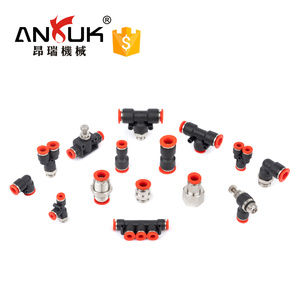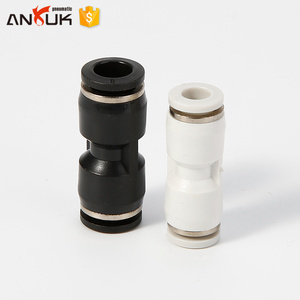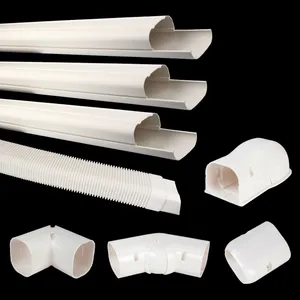Introduction to Air Conditioning Pipe Connectors
Air conditioning pipe connectors are essential components in the efficient operation of HVAC (Heating, Ventilation, and Air Conditioning) systems. They ensure a secure and reliable connection between various segments of piping, facilitating the proper flow of refrigerants and optimizing overall system performance. With advancements in technology and materials, these connectors have evolved to meet the stringent requirements of modern air conditioning systems.
Types of Air Conditioning Pipe Connectors
- Compression Connectors: These connect pipes through a compression fitting that tightens as the connector is secured, ensuring a leak-proof joint.
- Welded Connectors: Ideal for permanent installations, welded connectors are formed by melting the pipe edges together to create a strong, lasting bond.
- Flared Connectors: Featuring a flared end that fits into a matching fitting, these connectors provide a robust connection that can withstand high pressures.
- Soldered Connectors: Using a soldering technique, these connectors are commonly employed in copper piping, providing durability and reliability in connection.
Function and Feature of Air Conditioning Pipe Connectors
- Sealing: Proper air conditioning pipe connectors effectively seal the connections, preventing refrigerant leaks that can lead to inefficiency and environmental issues.
- Compatibility: These connectors are designed to work harmoniously with various types of piping materials, including copper, aluminum, and PVC, making them versatile for multiple applications.
- Pressure Resistance: High-quality connectors are engineered to withstand pressure fluctuations in HVAC systems, ensuring consistent performance over time.
- Temperature Tolerance: They can handle extreme temperatures, suitable for both heating and cooling applications, which enhances their usability across different systems.
Applications of Air Conditioning Pipe Connectors
- Residential Air Conditioning Systems: Used to connect indoor and outdoor units, ensuring efficient transfer of refrigerants for cooling and heating.
- Commercial HVAC Systems: Essential for large-scale heating and air conditioning setups, providing reliable connections in complex systems.
- Refrigeration Units: Facilitate connections in refrigeration systems used in supermarkets, warehouses, and cold storage facilities.
- Industrial Applications: These connectors are used in various manufacturing processes, ensuring temperature control and efficiency in production lines.
Advantages of Using Air Conditioning Pipe Connectors
- Ease of Installation: Many designs allow for quick and easy installation, reducing labor time and costs associated with HVAC system setup.
- Durability: Made from high-quality materials, these connectors offer longevity and resistance to corrosion, increasing the lifespan of HVAC systems.
- Energy Efficiency: By preventing leaks and ensuring proper connection, they enhance the overall energy efficiency of air conditioning systems.
- Cost-Effective Maintenance: Investing in quality connectors can save money on repairs and replacements due to their reliability and performance.
















































